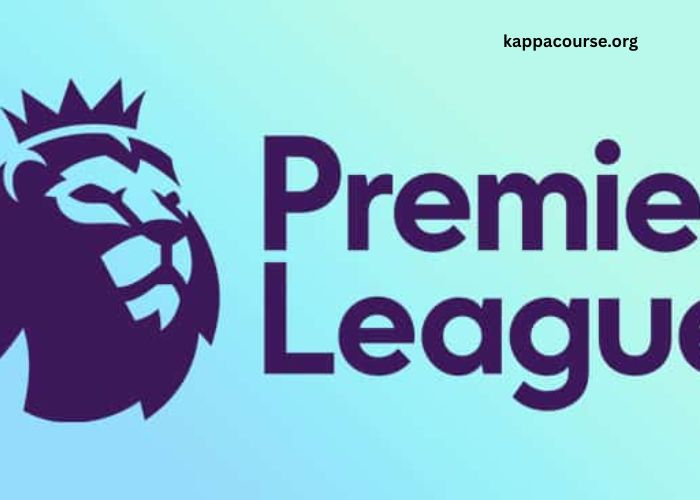The Classement Premier League offers a dynamic and thrilling perspective into one of the most competitive football leagues in the world. The rankings not only reflect the teams’ standings but also symbolize their strength and ability to challenge for the title. As the season progresses, the Classement Premier League can shift dramatically, with teams battling it out for the coveted top spots, often making for intense matchups that captivate millions of fans worldwide.
Throughout each season, the Classement Premier League serves as a primary focus for football supporters, giving them an essential view into how well their team is performing. Whether it’s a traditional powerhouse like Manchester United or a new challenger like Leicester City, the rankings in the Classement Premier League are shaped by each match result, team strategy, and individual player brilliance.
What Is the Classement Premier League?
The Classement Premier League is the official ranking system for the 20 teams competing in the top tier of English football, known as the Premier League. This ranking is based on the performance of each club throughout the season, which includes wins, draws, and losses in league matches. Points are awarded to teams based on their results: three points for a win, one point for a draw, and no points for a loss.
The Classement Premier League is crucial because it not only determines the national champion of England but also plays a significant role in deciding which teams qualify for international tournaments such as the UEFA Champions League and the UEFA Europa League. Teams with the most points at the end of the season are crowned as the Premier League champions, earning a spot in European competitions and securing financial rewards. The importance of maintaining a high position in the Classement Premier League cannot be overstated, as it affects a club’s standing both domestically and internationally.
How Is the Classement Premier League Determined?
The Classement Premier League is determined by a point system, where each club’s position is directly related to its performance during the season. The team with the highest number of points is ranked at the top, while the one with the fewest points sits at the bottom. As mentioned, teams earn three points for a victory, one for a draw, and none for a loss. The teams are then ranked based on their total points, and in the event of a tie, the following criteria are used:
- Goal Difference: The difference between the number of goals scored and the number of goals conceded.
- Goals Scored: If teams are still level on goal difference, the number of goals scored throughout the season becomes the deciding factor.
- Head-to-Head: If two teams are still tied, their results against each other during the season will be reviewed.
- Fair Play: In extreme cases, the team with the fewer number of yellow and red cards may be ranked higher.
The Classement Premier League is updated regularly, often after every matchday, providing an up-to-date reflection of how each club is performing in the league. Clubs fighting for a spot in the top four of the Classement Premier League will experience a different level of pressure than those battling relegation, with all teams focused on their next game to maintain or improve their position.
Why Is the Classement Premier League Important?
The Classement Premier League is incredibly important for several reasons, both for the clubs involved and the fans who follow them. For the clubs, finishing at the top of the Classement Premier League provides the ultimate reward—being crowned the champions of England. This title is a prestigious honor that not only boosts the club’s reputation but also opens doors to greater financial rewards. Premier League champions automatically qualify for the UEFA Champions League, Europe’s premier football competition, where they have the opportunity to compete against the best teams from other countries.
In addition, a high finish in the Classement Premier League means that a club is guaranteed to compete in the next season’s European competitions, with the top four teams typically qualifying for the Champions League. This leads to more exposure, better sponsorship deals, and a stronger squad, which can set the stage for future success. On the other hand, teams finishing in the lower part of the Classement Premier League may face relegation, where they will drop to the Championship, the second tier of English football, which could lead to financial struggles and loss of talent.
For fans, the Classement Premier League is more than just a number—it’s a measure of how well their team is performing in comparison to others. Fans follow the rankings religiously, with each win or loss having a profound impact on their hopes for the season. Whether it’s a late surge for a Champions League spot or a tense fight against relegation, the Classement Premier League dictates the mood of the supporters and sets the tone for the remainder of the season.
How Does the Classement Premier League Impact Teams’ Futures?
The Classement Premier League plays a pivotal role in shaping the future of clubs, both in terms of their financial situation and their ability to attract top players. A high position in the Classement Premier League directly correlates with success in European competitions. The top four teams earn qualification for the prestigious UEFA Champions League, which brings not only financial benefits but also the chance to compete against the best in the world.
For teams finishing in the lower half of the Classement Premier League, the stakes are just as high but for different reasons. These teams must fight to avoid relegation to the Championship. Relegation can have a devastating impact, as it results in the loss of television revenue, a drop in sponsorship deals, and the likely departure of key players who want to compete at the highest level. This can lead to a difficult rebuilding process for clubs.
In the long term, consistent performance in the Classement Premier League is key to maintaining financial stability and growing a club’s global fanbase. Teams that can consistently finish in the top six or top four positions tend to attract better players, secure larger sponsorships, and have a more prominent place in European football. As such, the Classement Premier League is central to a club’s strategic goals and their overall financial and competitive future.
Can the Classement Premier League Be Affected by Other Competitions?
Yes, the Classement Premier League can be affected by a club’s involvement in other competitions, both domestic and international. Teams that are competing in European competitions like the UEFA Champions League or the UEFA Europa League often experience fixture congestion. This can result in fatigue, injuries, and an increased risk of underperformance in the league.
In addition, domestic cup competitions such as the FA Cup and the EFL Cup can also divert attention from the Classement Premier League. As clubs compete for silverware in these cups, they must balance their resources between league matches and cup runs. The additional fixtures, coupled with the pressure to perform at a high level, can negatively affect a team’s league form, leading to a drop in the Classement Premier League rankings.
Moreover, teams that have deep runs in international tournaments may face the challenge of rotating their squad effectively to avoid burnout. Clubs that fail to balance their league and cup commitments can find themselves falling down the Classement Premier League, potentially losing crucial points in the race for top positions.
How Can Fans Track the Classement Premier League?
For fans who want to keep up with the ever-changing Classement Premier League, there are a variety of ways to stay informed. Official Premier League websites and apps provide real-time updates on match results, detailed statistics, and the current standings. These platforms offer interactive tools that allow fans to track their team’s progress, analyze their form, and predict their chances of climbing higher in the rankings.
In addition to official resources, many sports news websites and TV channels dedicate coverage to the Classement Premier League, offering expert analysis, breakdowns of key matches, and insights into how each team’s position is likely to change as the season progresses. Social media is another powerful tool for staying up-to-date with the Classement Premier League, with fans and sports journalists alike sharing commentary, predictions, and updates on Twitter, Instagram, and Facebook.
Conclusion
In conclusion, the Classement Premier League is not just a ranking of teams; it’s the heartbeat of English football. It determines not only the best teams in England but also plays a critical role in shaping their futures. From financial rewards to European qualification, the rankings have far-reaching implications for the clubs involved. As fans, keeping track of the Classement Premier League offers an exciting and often emotional connection to the game. Ultimately, the Classement Premier League encapsulates everything that makes football thrilling—competition, passion, and the quest for glory.





